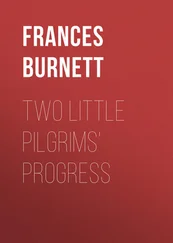“That was ingenious of you,” he said.
“I beg your pardon?”
“Going to the Murphys’ for supper, like that, so that I would come back to an empty house!”
“You said yourself—”
“And then sending Buzzer over for me to put to bed as soon as you saw me arriving! That was a neat touch, too. How did you manage to keep the house watched? Or did you get the Murphy kids to do it?”
“You said yourself you wouldn’t be back.”
“I said I mightn’t be back.”
“And I’m supposed just to wait and see—”
“You had no intention of going to the Murphys’ until it seemed to you to offer just one more chance of punishing me — had you?”
“That has nothing to do with it. If you go out for supper, why shouldn’t I!”
“You went there simply and solely to give me an empty house to come back to, and whether or not I stayed out to supper, didn’t you! The idea of the empty house, when you’d been blackmailing me with threats of leaving—”
“I had a perfect right to do what I did.”
“It was one of the meanest things you ever did — and I may say you’ve certainly been excelling yourself lately! Think it over. And perhaps, when I’ve finished foraging for the cold supper which you’ve so kindly not left for me, you’ll be ready to apologize.”
Turning too quickly, lest he give her time to answer, he tripped over the hall rug, stumbled, kicked it from him violently — damn! And then in his haste to retrieve himself, miscalculating in the dark, struck his right shoulder, painfully, against the doorjamb of the dining room. How disgusting — how grotesque. To give her, on top of everything else, that opportunity! He reeled, the pain sickened him, he pressed his hand hard against the bone, and it was not till he had reached the dark kitchen, and was groping for the lamp chimney on the shelf behind the stove, that he realized how completely the two little accidents had changed his plans. He had meant to go first, a little ostentatiously, to the dining room, light the candles, lay out the silver on the table, make his preparations with every appearance of leisure and formality — he might have to dine alone, but, by god, he could at any rate dine in state, wife or no wife! Yes … But instead, the unforeseen shock had driven him straight out to the kitchen, as far from her as he could get, so that he could hug his pain in secret. Just the sort of unpredictable accident that ruins everything — the little element of last-minute comedy that turns a tragedy into a farce. Like accidents on the stage — as when the tree trunk parted of its own accord, and Siegfried’s sword fell clattering out, before he had time even to get his hands on it. Yes. Damned funny! If one was on the right side of the curtain! But as it was—
As it was, the kitchen had its points: it was nice in a rain, anyway, for the rain on the thin, low roof sounded so loud and so near, one felt so exposed, it was almost as if one were outdoors: and the shadows, cast across the peeling whitewashed rafters, were so spectacular: and besides, in the circumstances, the whole notion was perhaps agreeably forlorn. He found in the cupboard — sure enough, what a joke — a tin of sardines, miraculously complete with a key, and opened it — he found a box of crackers. He forked out the dovetailed metallic sardines with a leaden kitchen fork, laid them neatly across the white crackers, and perched himself on the corner of the kitchen table to eat.
Dining at the Murphys’ like that—!
And then pretending that she had no ulterior motive—!
And knowing all the while that he would really be back for supper, anyway—
He rubbed his shoulder and listened to the persistent rain. He remembered that tomorrow was Friday, and that Mr. Murphy would be calling for him early with the Ford (which meant no breakfast either, not till he had reached the South Station in Boston), and he was just thinking how extraordinarily a silence can put distance between people, or turn a small house into a big one — as now, for instance, with positively an Atlantic Ocean spreading its screaming wastes between the studio and the kitchen — when the front doorbell rang. Zring —zring — it rang twice, loudly, and he heard Enid opening the studio door, and shooting back the bolt of the front door, and a voice, a male voice. Who the devil—!
He stepped up quietly into the dark dining room and listened.
“No, I’m afraid I don’t know where Timothy is.”
“Oh.”
“I’m sorry.”
“Well, I’m very sorry to disturb you , Enid—”
(It was Jim Connor — the voice broke off, hesitating.)
“—but I just thought I’d like to bring these little things over, these little toys, for Buzzer — if you didn’t mind—”
“Oh! I see.”
“They’re not very much. A couple of small things, all I could find here — Shall I put them down on the floor?”
“Yes. That will be all right.”
“Okay. There! Just a little pink cart — I thought, as we might be leaving for New York soon—”
“Oh—”
“—I’d like to give Buzzer something for her birthday. And to say good-by, Enid, and tell you how sorry I am about this mix-up.”
“Yes. That’s all been settled, hasn’t it?”
“Settled? Yes, I’m afraid it has! Well, good night, Enid, and no hard feelings.”
“Good night.”
“Good night!”
The door closed firmly on the melancholy voice, the bolt shot sharply in its socket, and then there was silence. Was she looking now at the little pink cart? Standing there and looking at the pink cart — and perhaps belatedly discovering, and feeling, her shame? Good god, what a scene. There was time, and plenty, to run after him, of course — he could walk back with him, walk up to the post office with him — across the bridge, even — but what was the use? To do so would solve nothing, alleviate no feelings. The rehabilitation with Jim could well wait, couldn’t it? till next he went to New York, and met him on “neutral” ground — and meanwhile it would only serve, of course, to complicate still further the dreadful tangle with Enid. Or was it cowardice to look at it like that?
Cowardice — yes.
He sat down on the piano bench, in the half-dark room, struck a match, lit the green bayberry candle that stood on the piano, in the green-wax-smeared mahogany candlestick, and looked up at the Japanese print which hung on the wall above and behind it. Famous Place to See Moon . The dark, nocturnal mountain torrent, among black rocks, rocks hooked and horned, zigzagged its way downward under the moon, and in every pool, on every stone shelf where the night-blue water had gathered to spill, a full moon was reflected — it was a chorus of moons, among the dark mountains, to praise that other moon which sidled out from a frond of cloud. Famous Place to See Moon —he remembered when they had bought it in Boston — seeing it in the window — he remembered how they had looked at it then, how much they had seen in it, how magical it had seemed. And now, suddenly, it struck him that he had not looked at it in the same way — looked at it like this, with care, with love — for years. Yes, that was true. And it was true of other things, too. One forgot them, one took them for granted — but how could it be otherwise, how could it possibly be otherwise? The first leaf, again — yes, it was exactly like that, the freshness of the first vision — the freshness of the first love — and manifestly it would be absurd to expect that first freshness to last. As if an ecstasy could be permanent! How absurd. And yet, the thing itself was as beautiful as ever: the leaf, the Japanese print, or the woman one loved: it was only oneself that failed. The eye became fatigued, ceased to see — ceased to look — and instead of love, by god, marriage settled down to being just the terrible bed of habit — callous, careless, indifferent — but how else could it be? And all the w.c.’s—!
Читать дальше












